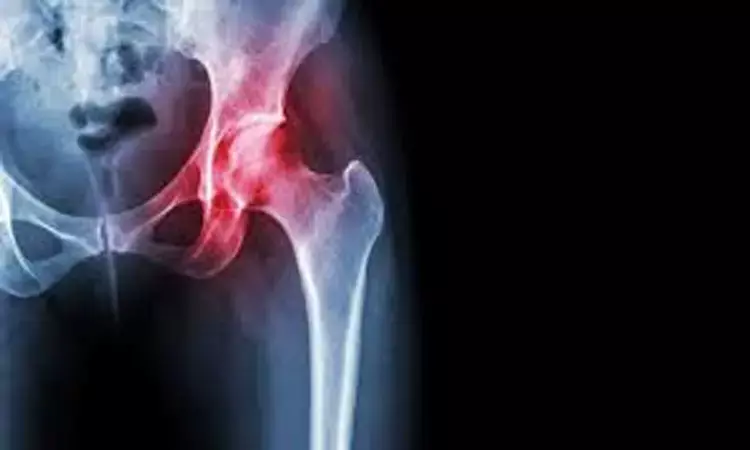- Home
- Medical news & Guidelines
- Anesthesiology
- Cardiology and CTVS
- Critical Care
- Dentistry
- Dermatology
- Diabetes and Endocrinology
- ENT
- Gastroenterology
- Medicine
- Nephrology
- Neurology
- Obstretics-Gynaecology
- Oncology
- Ophthalmology
- Orthopaedics
- Pediatrics-Neonatology
- Psychiatry
- Pulmonology
- Radiology
- Surgery
- Urology
- Laboratory Medicine
- Diet
- Nursing
- Paramedical
- Physiotherapy
- Health news
- Fact Check
- Bone Health Fact Check
- Brain Health Fact Check
- Cancer Related Fact Check
- Child Care Fact Check
- Dental and oral health fact check
- Diabetes and metabolic health fact check
- Diet and Nutrition Fact Check
- Eye and ENT Care Fact Check
- Fitness fact check
- Gut health fact check
- Heart health fact check
- Kidney health fact check
- Medical education fact check
- Men's health fact check
- Respiratory fact check
- Skin and hair care fact check
- Vaccine and Immunization fact check
- Women's health fact check
- AYUSH
- State News
- Andaman and Nicobar Islands
- Andhra Pradesh
- Arunachal Pradesh
- Assam
- Bihar
- Chandigarh
- Chattisgarh
- Dadra and Nagar Haveli
- Daman and Diu
- Delhi
- Goa
- Gujarat
- Haryana
- Himachal Pradesh
- Jammu & Kashmir
- Jharkhand
- Karnataka
- Kerala
- Ladakh
- Lakshadweep
- Madhya Pradesh
- Maharashtra
- Manipur
- Meghalaya
- Mizoram
- Nagaland
- Odisha
- Puducherry
- Punjab
- Rajasthan
- Sikkim
- Tamil Nadu
- Telangana
- Tripura
- Uttar Pradesh
- Uttrakhand
- West Bengal
- Medical Education
- Industry
Corticosteroid injections of hip linked to 'rapidly destructive hip disease'

The increased rates of RDHD are especially apparent in patients receiving repeated and/or high-dose corticosteroid hip injections, according to the report by Kanu Okike, MD, MPH, of Hawaii Permanente Medical Group, Honolulu, and colleagues. Their study includes the largest series of patients with post-injection RDHD reported to date.
New evidence of increased RHDH risk following corticosteroid injection
Dr. Okike and colleagues used two different research approaches to assess the possible association between intra-articular (i.e., inside the joint) corticosteroid injection and RDHD. The first part of the study compared 40 hips that developed RDHD and 717 hips that underwent total hip arthroplasty for other reasons between 2013 and 2016.
After adjusting for other factors, "[H]ip corticosteroid injections were found to increase the likelihood of RDHD approximately 8.5-fold," according to the authors. The analysis also showed evidence of a "dose-response" effect: the likelihood of RDHD was about 5 times greater in patients who received low-dose corticosteroid injections and nearly 10 times greater with high-dose injections. "A similar dose-response pattern was observed for the number of injections performed," Dr. Okike and coauthors add.
In the second part of the study, the researchers reviewed data on 688 hips that underwent corticosteroid injection during the same period. Thirty-seven of these hips developed post-injection RDHD, for an incidence of 5.4 percent. The diagnosis of RDHD was made an average of five months after injection; all patients underwent THA.
As in the first part of the study, the risk of post-injection RDHD was higher in hips that received a higher dose of corticosteroids and a greater number of injections. The authors suggest that the risk of RDHD following a single, low-dose injection is relatively low: about two percent. However, risk may increase to five percent following multiple low-dose injections or a single high-dose injection, and up to 10 percent following multiple high-dose injections.
As they became aware of the possible link with RDHD, orthopedic surgeons at the study hospital started ordering fewer hip corticosteroid injections and avoiding high-dose injections. In subsequent years, the number of RDHD cases decreased, even as the number of THAs performed for other reasons remained stable.
"[T]he present study provides evidence of an association between RDHD and intra-articular hip corticosteroid injection," Dr. Okike and colleagues conclude. They add that while the evidence suggests that hip corticosteroid injections lead to an increased risk of RDHD, the study cannot confirm a true causal effect.
The researchers believe their findings can help to guide clinical practice for patients with painful hip osteoarthritis. Dr. Okike and colleagues note that their department has added a discussion of post-injection RDHD to the informed consent process for patients considering hip corticosteroid injection and has stopped performing high-dose corticosteroid injections.
Dr Kamal Kant Kohli-MBBS, DTCD- a chest specialist with more than 30 years of practice and a flair for writing clinical articles, Dr Kamal Kant Kohli joined Medical Dialogues as a Chief Editor of Medical News. Besides writing articles, as an editor, he proofreads and verifies all the medical content published on Medical Dialogues including those coming from journals, studies,medical conferences,guidelines etc. Email: drkohli@medicaldialogues.in. Contact no. 011-43720751


